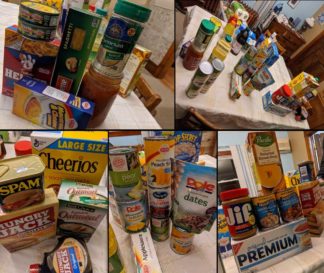By Mark Engebretson
University of Minnesota Extension is helping Greater Minnesota deal with the COVID-19 pandemic by developing emergency meal plans and pickup and delivery models for rural grocery stores to deliver to their customers.
And the University Libraries is an important partner in getting the word out, said Kathy Draeger, adjunct professor and Statewide Director, U of M Regional Sustainable Development Partnerships for U of M Extension.
“The [University Digital Conservancy] provides a stable platform to publish ‘just in time’ work,” Draeger said about the recently published tool kits. “These are examples of important and emergent issues that the U of M is providing thoughtful and researched leadership in addressing — and the University’s online Digital Conservancy has been a key way for us to make resources widely available to the community members who are asking for them.”
Connecting U resources to Minnesota and beyond
Extension’s mission includes making an impact by “connecting community needs and University resources to address critical issues in Minnesota.” And the role of University Archives in this case helps fulfill its mission, which is in part, to provide U of M resources openly and broadly, said Erik Moore, head of University Archives and co-director of the University Digital Conservancy, the digital arm of the U Archives.
Moore said that as of last week, the COVID-19 Emergency 14-day Meal Kit had been downloaded more than 3,300 times, from Ely, Minn., to towns in Australia.
The meal kit fact sheet helps grocers working in their communities to “prepare and deploy pre-made boxes with 14 days of emergency food that is healthy, shelf stable, easy to prepare, [and] calorie sufficient for vulnerable populations facing hardship due to coronavirus.”
The Tips for Small Town Stores: Curbside Pickup and Delivery Model — uploaded a few days ago — provides basic instructions for grocery stores to include curbside pickup and delivery in order to “protect worker safety and address COVID-19 concerns while still maintaining the movement of groceries into communities for distribution.”
Moore noted that Ely is the number 3 location for downloads of the meal kit, following the top 2, Minneapolis and St. Paul. Nearby cities in the top 10 include Rochester, Mankato, and Omaha, Neb. Globally, Ireland is the number 2 country after the United States and Iran is in the top 10.
“This is timely. This is important,” Moore said. “This is quite literally designed to keep people healthy and safe during a pandemic — and especially to assist people in rural communities who do not have the same type of access to groceries and supplies and online ordering.”
Content will live on as an historic resource
Moore added that the content will live on, preserved as a future historic resource through the University Archives.
“As people go on to study the pandemic and the response, this will become a primary resource about the University’s response and the general response to COVID-19.”






